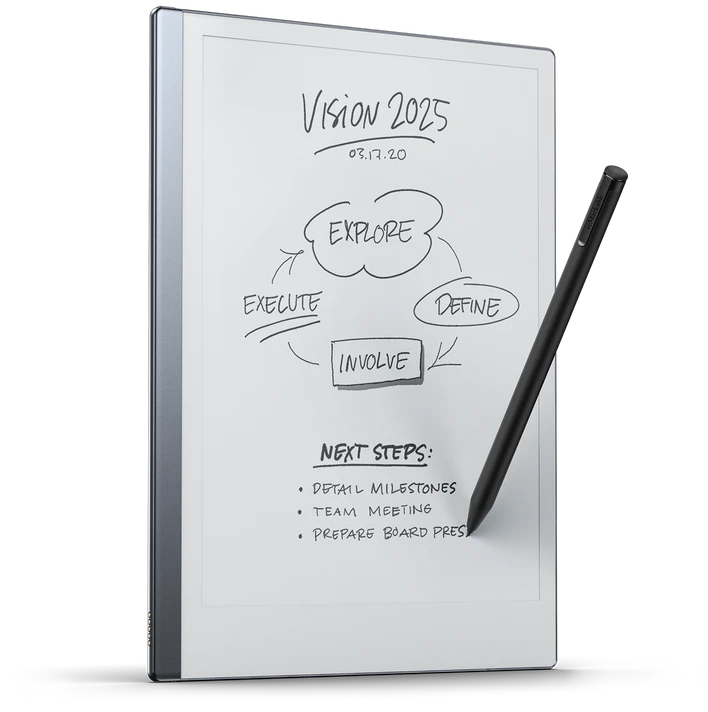May you own a little more this year than in the last.

I’m not talking about having being more materialistic or going out to consume and shop. No, I’m talking about the things you think you already own, but do you really?
Ownership
There were a lot of things to worry about in 2021. I’m not going to touch most of the ones that come to mind. What we don’t worry about, in fact we really just shrug about is what we own. Sure, you bought that car/TV/appliance/song, but how many of them do you actually own? More and more often the things we buy or have are not fully ours. Other parties exert control over the things we have around us. Think I’m kidding? Let’s look at just a sample of 2021.
-
Toyota disabled auto start on some of it’s cars if the owner didn’t pay a subscription.
-
Vizio makes twice the profit on selling ads and subscriptions than on selling the TVs.
-
Google Clip became a paperweight as the ball dropped somewhere last night.
None of these are the first time something like these have
happened, nor are they the only cases of it in 2021.
I’ve written about this before.
More and more of our technology is really us buying a
license to use something more than buying the item itself.
I don’t know about you, but when I put down money on something I still think about owning it the way I do about owning a screwdriver or saw. Even those analogies are eroding away as farmers can tell you when they aren’t allowed to work on their own tractors. It isn’t much better when a server in the cloud has as much control over my equipment as I do. How many laser cutters stop working without connecting to the cloud?

Transient ownership
I have a friend who saw the ability to buy movies on Amazon video when that option first became available. He quickly went in and bought all the movies he had been keeping DVDs of (this was a number of years ago) and got rid of the DVDs to free up space in his house. It wasn’t but a year or so before he couldn’t find one of the movies he had “bought” on the streaming service. When he complained, Amazon told him they no longer had the rights to the movie and he couldn’t watch it on their service. He hadn’t “bought” the movie. He had paid up front for rental rights.
Many streaming services have pushed to unlimited subscription services, partially to avoid this outrage, partially because it is a great deal if you consume a lot. We all pay for streaming services and can watch movies that have been out for a while. This concept is even more powerful for music where most streaming services have most music available at all times. We are starting to see that crack though.
As the content owners are seeing dollar signs, they have taken their content back from the major streaming services and made their own. The golden age of streaming where content was available on 1-3 services has now been replaced by a few dozen. I had hoped the content producers would be able to sell their content on competing services, like a book store. Instead we have backed into walled gardens.
Bought Star Trek content on line? You now need a subscription to Paramount+. Star Wars, Pixar or Marvel? Put some money down for Disney+. Want a deal on Disney+? You will most likely have ESPN also, even if you never watch it. A lot of sitcoms that my kids watch are only available on Peacock now. How many streaming services are we going to “have” and rarely watch? As my youngest said, “It’s like we recreated cable with more steps.”
What these services miss is that I would be willing to buy the content I like if it meant I could enjoy it independent of them in the future. Do I really need Paramount+ just so I can watch Star Trek? [Hint, I’m not going to go find something just to gaze my eyes at. Time is valuable and there are a few dozen shows not worth my time for every one I do care to watch.] I wonder if modern piracy is more about convenience and access than saving money?
Hardware
We have come to believe in transient ownership in software and media, but hardware is another thing. I highlighted the Google clip above. It was an interesting camera that would learn to take the pictures you wanted as it sat there. No more experiencing events through a viewfinder or phone screen. You just clip it somewhere and enjoy the memories later. Google turned them all off last night. I haven’t tried mine, but it is probably worth only the scrap of the battery and lens now.
Google does this a lot. Normally they are a bit better
then most. I have 3 Chromebooks in the family for travel.
They all lost support after about 6 years. Same for a
Chromebox at work. They all still function, just no
updates. The chrome OS is running slow on them,
but I can load Linux on them and keep using them.
Smartphones are notorious for this also.
I see Android and iOS integration in cars and major appliances. How long is that going to be supported? My car just loaded Alexa the other day. I don’t want it, but I don’t know how to remove it (at least not without voiding the warranty and never getting another update). In 10 years how many of these interfaces are going to still function? I still drive my 1989 pickup and my youngest still drives my 2009 Prius. All they need is gas and maintenance to keep running the way they came from the factory. I’m not sure that will be true of any car made today.
This is starting to apply to fridges, stoves, and other major appliances. Samsung says they will get updates for 10 years, but what happens then? I still have a mini fridge from the 80s and a freezer from the 70s. It doesn’t sound “smart” if I have to replace this appliance in 10 years. Sure it may still keep my food cool, but could it also be the major hacking route in year 11 and beyond?
DRM, content owners own your endpoint
Many of the devices we use today we can’t even control fully. Your smartphone has to be “jail broken” or “rooted” just so you can gain access to the full configuration. When you do either you also cut yourself off from a lot of features and content.
Even your browser has a feature where it can lock you out of some configurations. Chrome just does it to you. Firefox ask if you want to turn on DRM first. DRM is Digital Rights Management. When turned on there is a pipe outside your control from the source of the content (streaming or encrypted files) all the way to your screen’s pixels.
Think about that for a minute. The device you are reading this on has locked you out of features so content owners can be protected. You have lost control over your device so someone else can control their bits, that you most likely paid to consume. Does that feel right to you?
This isn’t even stopping piracy, which was the reason for developing the technology. People are willing to pay for the simple clean access to content. Those that really want to pirate content still can, this prevents you and I from using the content in ways like mashups or fair use. We have given up full control of our devices so other parties can control what we pay for.

I saw this on the news last night. The reporter wanted to reference a TED talk. Noticed the reflection of the reporter holding his phone up to record the video? I’m guessing he was recording off a tablet or touch screen laptop where the reflection was pronounced. The point is that a reporter found it easier to just whip out his phone and get around all the DRM with a crappy copy than to go through proper chanels. Who did the DRM serve in this case?
2022
There is some good news. You have more rights to ownership and there are options.
Governments are getting serious about “The right to repair” and are starting to ask about what happens when support disappears from devices. Given the current climate I don’t think just buying a new one is going to be universally accepted as an answer.
The technology is also getting more mature for you to host your own services rather than rely on a cloud version. Photos, videos and music that you own can be kept locally on servers that are easy to setup and use. More devices have alternate firmware available that let’s you and/or a community keep them updated as long as you want.

I’m not going to give up all my cloud services, nor should you. Although I’m taking ownership back where it makes sense. On a MicroSD card I can store all the family photos and videos for about $40. I know that isn’t a safe way of storing things, but what about 3 of them in 3 different locations? What about 3 different RAID arrays in those locations? A couple SSDs and Raspberry Pis aren’t a bad option and it is getting easier to keep them updated. Enough that I don’t feel they are a security risk behind my firewalls. My family’s memories are safer in this case than in a cloud service that might go away, and I can always put a back up in the cloud on top of it.
Books, I have a lot of them. So many that moving will be a chore just to move the books and associated shelving. I have been buying e books as it is nice to be able to carry around reference material and my favorite reads in a small package. Nicer than carrying one book around or having to go back home to get a different one.
For the popular books I have to buy them with DRM. I don’t expect to have to refer back to those books though. For my hard references I make sure I get the books in an open format without DRM. Most of them have been ePub, with some being PDF. More technical publishers are growing to this idea and sell their technical books without DRM. Now I can look up and read them on my computer, phone, tablet or ebook. I can also annotate my copies and search my notes in some cases (once you start doing this it gets powerful).

When I use devices that let me own my content I feel free and am often more productive. The device above is a great tablet in that it replaces a lot of paper for me. I can use it in the cloud, but I can also use it just the way it is to read and mark up books or to jot ideas down. I’ve loved using my Android tablets for similar purposes (and still do some), but I really didn’t own them. I could own the content, but I really needed to coordinate through the cloud to use my device on my content. Meh.
I will be documenting some of my progress and failures here in the coming year. Hopefully it might help one or two other people own more in 2022 than they did in 2021. That would be a great start to a new year.